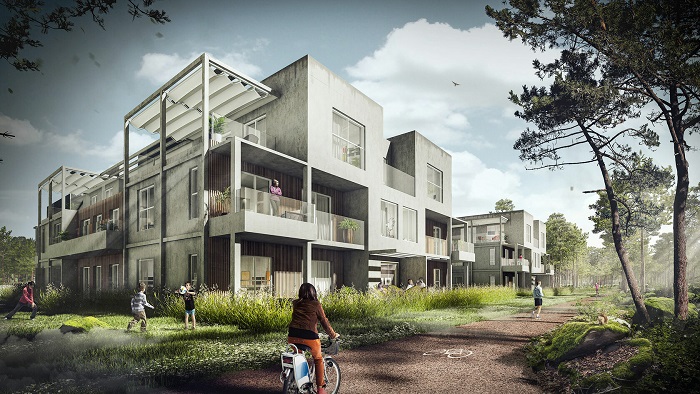Visualization of space plays a big role in modern architectural design. Architectural 3D rendering is used for this purpose. When it comes to architectural design, the use of 3D architectural rendering has revolutionized the way ideas are communicated and presentations are made. This cutting-edge technology offers architects, designers, and clients a powerful tool to visualize and understand architectural concepts like never before.
Enhanced Communication
One of the key advantages of 3D architectural rendering is its ability to enhance communication throughout the design process. By providing realistic visualizations of proposed spaces, architects can effectively convey their ideas to clients, stakeholders, and team members. This clear and accurate representation facilitates better understanding and collaboration, leading to more successful design outcomes.
Interactive Presentations
3D architectural rendering allows for interactive presentations that engage audiences in a way that traditional drawings and models cannot. With the ability to navigate through virtual spaces and explore different design options, clients can gain a deeper understanding of the project and provide valuable feedback. This interactive approach fosters greater client involvement and buy-in, resulting in designs that better meet their needs and preferences.
Realistic Visualizations
One of the most compelling aspects of 3D architectural rendering is its ability to create realistic visualizations of architectural designs. By incorporating details such as lighting, textures, and materials, renderings can accurately depict how a space will look and feel once built. This level of realism allows clients to make more informed decisions and enables architects to communicate their design intent with greater clarity.
Streamlined Design Process
Another significant benefit of 3D architectural rendering is its ability to streamline the design process. By allowing architects to visualize and iterate on designs more efficiently, rendering technology can help expedite project timelines and reduce costs. Additionally, the ability to identify and address design issues early in the process helps minimize the need for costly revisions later on.
Cost and Time Savings
By facilitating more efficient communication, reducing the need for physical prototypes, and enabling quicker decision-making, 3D architectural rendering ultimately leads to cost and time savings for architects and clients alike. These savings allow for greater flexibility and creativity in design, as well as a more streamlined project delivery process.
Conclusion
In conclusion, the power of 3D architectural rendering cannot be overstated. From enhancing communication and presentation to streamlining the design process and saving time and money, this technology offers numerous benefits to architects, designers, and clients. For those looking to elevate their architectural projects to new heights, Render Vision is a trusted partner in harnessing the power of 3D rendering technology. Contact Render Vision today to learn more about their services and how they can help bring your architectural visions to life.


